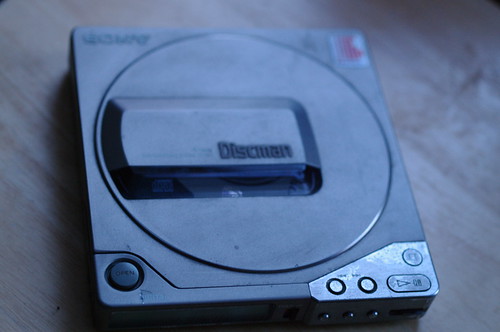2 minutes estimated reading time
When you think about the likes of the Sony Discman D-250 you need to realise what it was like growing up in the 1980s. It meant that personal music on the move was a ghetto-blaster perched on your shoulder annoying the neighbourhood or a Sony Walkman personal stereo. I was really fortunate in that I had a half decent Walkman WM-24 which whilst bulky gave half decent sound. It was more expensive looking than it actually was but the Dolby noise reduction made a big difference. This eventually died on me and I ended up with a more modern, but poorer quality Walkman WM-36.
But a CD player was what you really wanted, for decent sound.

I poured over the Sony catalogues working out which one I wanted (the Sony D-Z555) versus the best that I could afford (the Sony D-250). The Sony D-250 Discman was in Sony’s premium Discman range, featuring a pressed metal chassis and a NiCD rechargeable battery the size of a packet of Dentyne gum. Eventually the battery dying and my not being able to buy a replacement battery would see it do hi-fi duty. Portable music would have me use a Sony DCS901 Sports Discman. This also played CD-Rs full of MP3 files – it was my pre-iPod and had a battery life of almost 40 hours, but more of that another time.
The Discman D-250 came with line-out connection for a hi-fi and you could attach a wired remote control. It could be programmed to random play, play tracks in a specific order and access CD ‘index marks’. These index marks put you to predefined points in a specific recording and at the time were only used in some classical recordings. As a standard it wasn’t widely supported but would have leant itself well to the mix CDs that started to come along a few years later from Mixmag Live.
The CD has served me well as a player for my hi-fi system because of its rugged mechanicals and decent electronics long after I started using an iPod for portable music and its more sophisticated brother the D-Z555 is highly prized by hi-fi enthusiasts for the same reason, particularly as it featured a digital output as well.